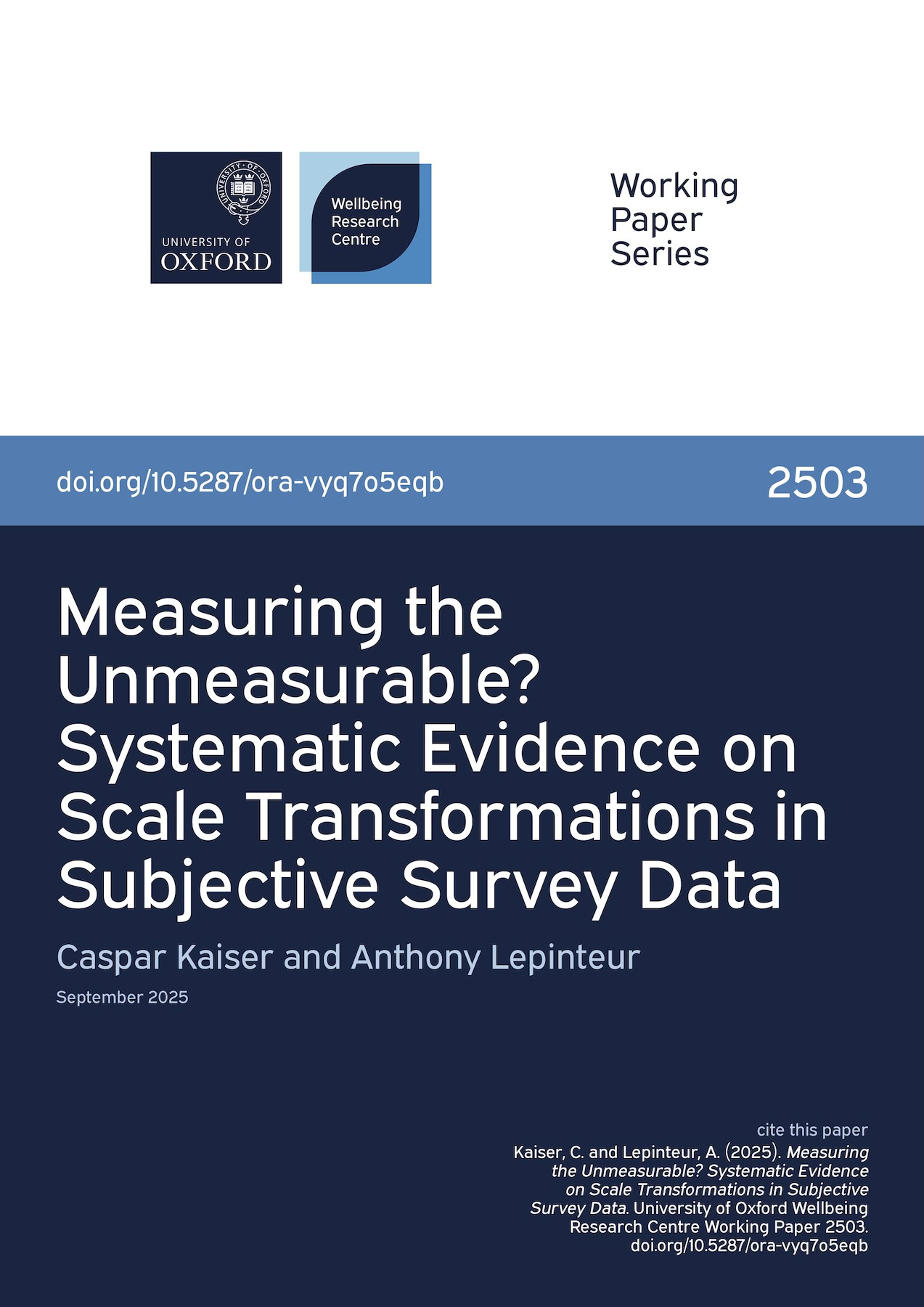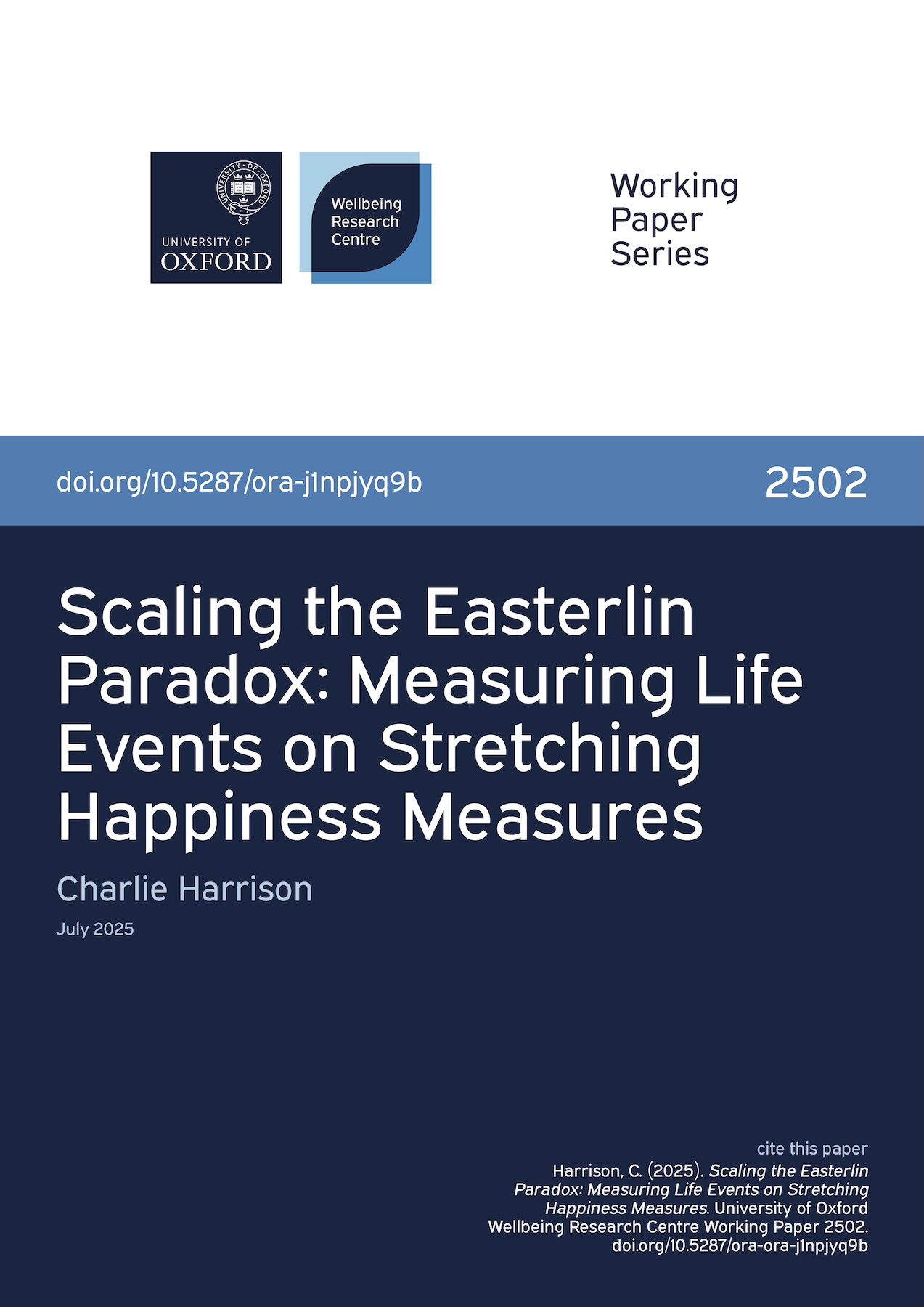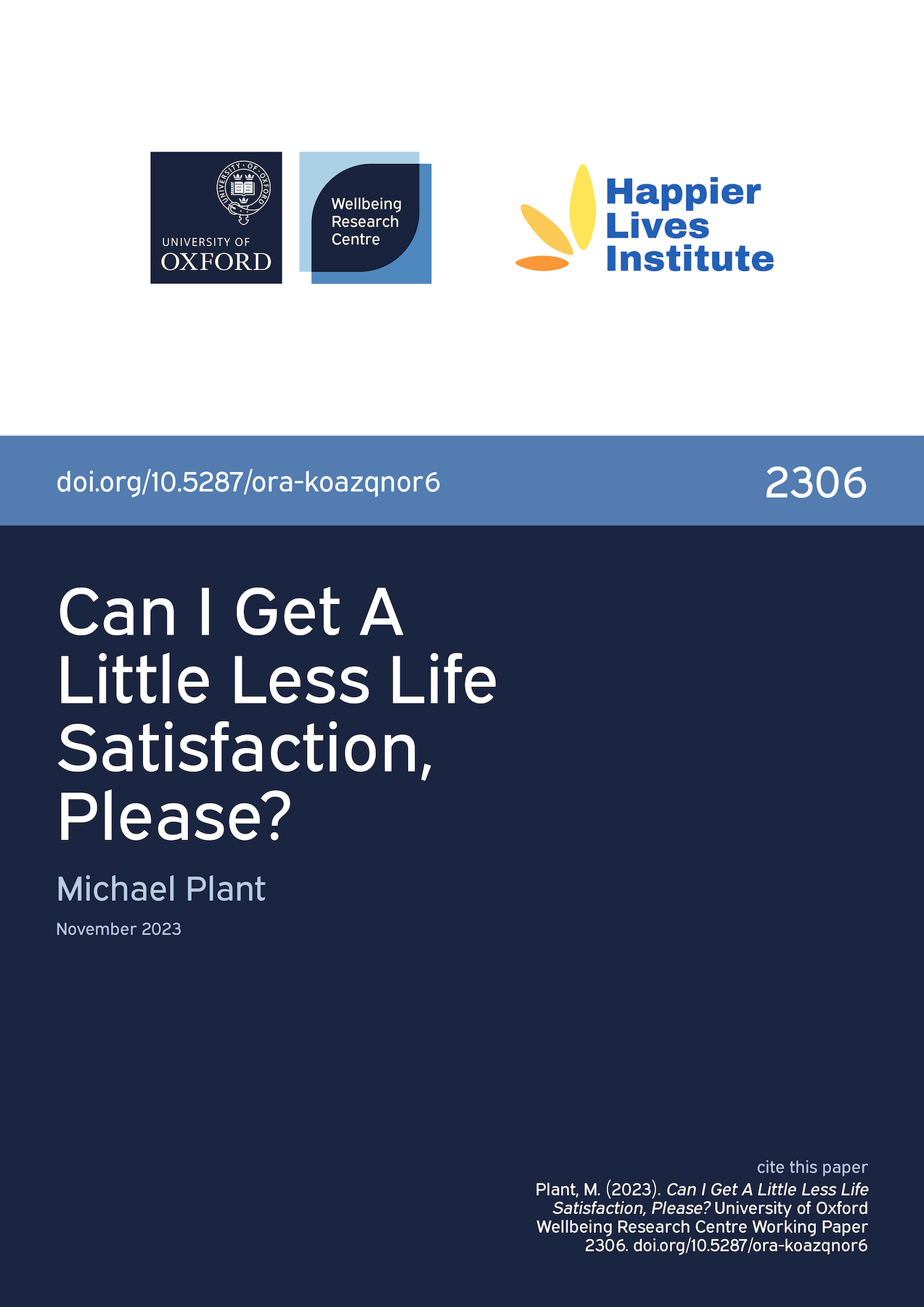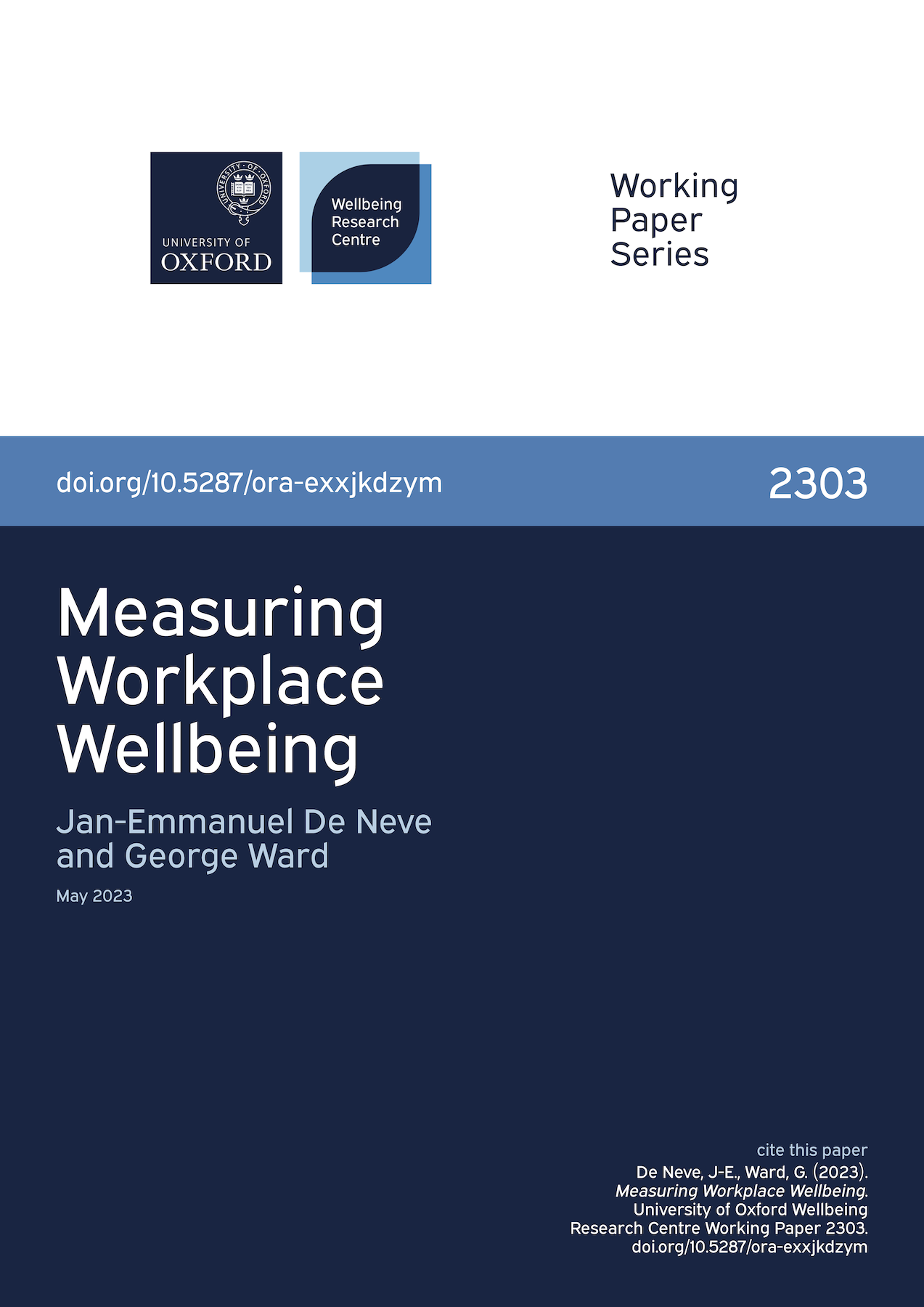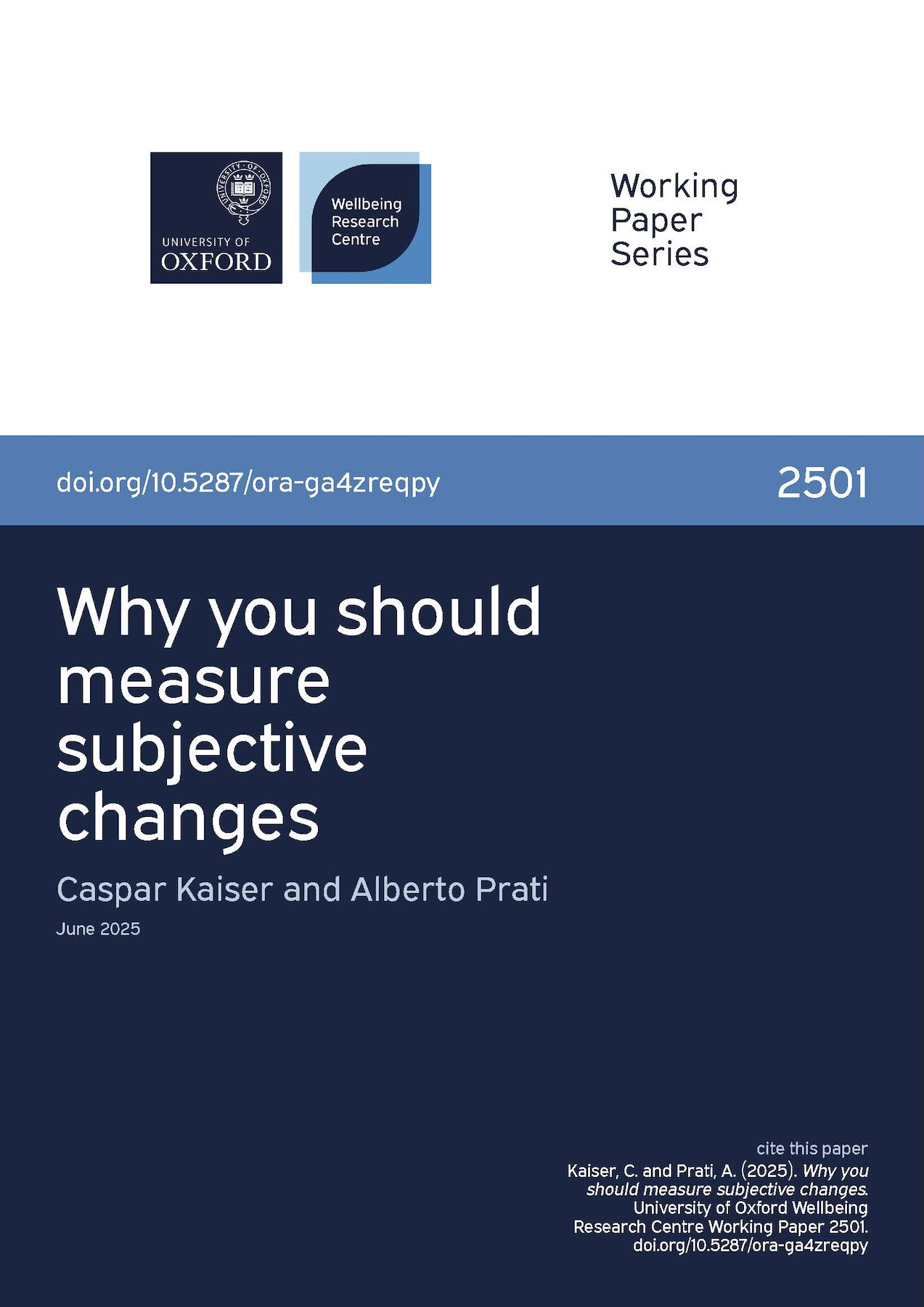
2501 | Why you should measure subjective changes
Caspar Kaiser and Alberto Prati
Satisfaction data are widely used in psychology and the social sciences. Those data normally seek to measure satisfaction levels. Yet, for many applications we are primarily interested in the change in satisfaction following an intervention or life event. We here show that, compared to inferences from longitudinal data on levels, cross sectional interviews that ask about changes in satisfaction yield data that (i) are more sensitive to life events, (ii) more accurately track changes in objective benefits, (iii) display comparable psychometric properties, and (iv) are less affected by respondents’ day-today mood. The results hold across several domains of life. Primary data from two studies (N=2,012; N=1,734) are supplemented by large-scale secondary data from the British Household Panel Survey (N≈150,000). Our findings provide robust evidence that repeated cross-sectional surveys are sufficient to track satisfaction changes reliably, without the need of longitudinal panel data.
